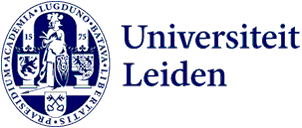
Shepherd dogs, sanctions and Instagram algorithms: Three days in the EU’s capital
At the end of October the students of MA International Relations: European Union Studies once again made the journey to Brussels for three days of behind-the-scenes insights into EU politics and policy-making. From the intricacies of European defence cooperation to the future of digital trade, students discovered what really happens in Europe's capital – and what it takes to build a career there.
Day 1: The challenge of European defence
The trip kicked off at the European Defence Agency, where students learned how the agency manages to shape EU defence policy despite having limited competences and an annual budget of less than a third of a single fighter jet. Our excellent guide had some very concrete examples to illustrate where the work of the agency is needed: Why can't Dutch mechanics repair Belgian helicopters (yet)? Where do you find information on the global supply chains of rare earth materials? What happens to intellectual property in joint military projects? We also got some eye-opening insights into the practical challenges of European defence cooperation and learned why a European agency is a bit like a shepherd dog: it may not give wool or milk, but it is essential to coordinate everyone else’s work.
Day 2: From the work-life balance directive to sanctions
At the European Parliament, students got answers to questions both practical and political. How many languages do you need to know to work as a translator at the Parliament? Why is it so difficult to impose tariffs on Chinese cars? Did EU really ban pepernoten? (Spoiler: they did not.) And why you should thank the Brussels if you get to stay home with your newborn baby for more than two days! The day continued with a masterclass on sanctions at the Council of the EU, exploring why EU imposes sanctions on other countries, whether they work (and how we can know) and the diplomatic challenge of convincing other countries to support them.
The evening brought the most exciting moments of our trip: a chance to meet the alumni. Over dinner and drinks, former EUS students now working in EU institutions, agencies, and civil society organizations shared insider knowledge about the ins and outs of the Brussels job market. Is it better to specialize in one thing or know a bit about everything? Which institution has the best canteen? Can you use ChatGPT at work without losing your job? Amid chatter and bits of good advice, it was a great joy to see so many of our former students doing so well in the EU’s capital, and a confidence boost for our current students: you’ll get there, the Leiden community in Brussels has your back!
(Read on below the photos)
-
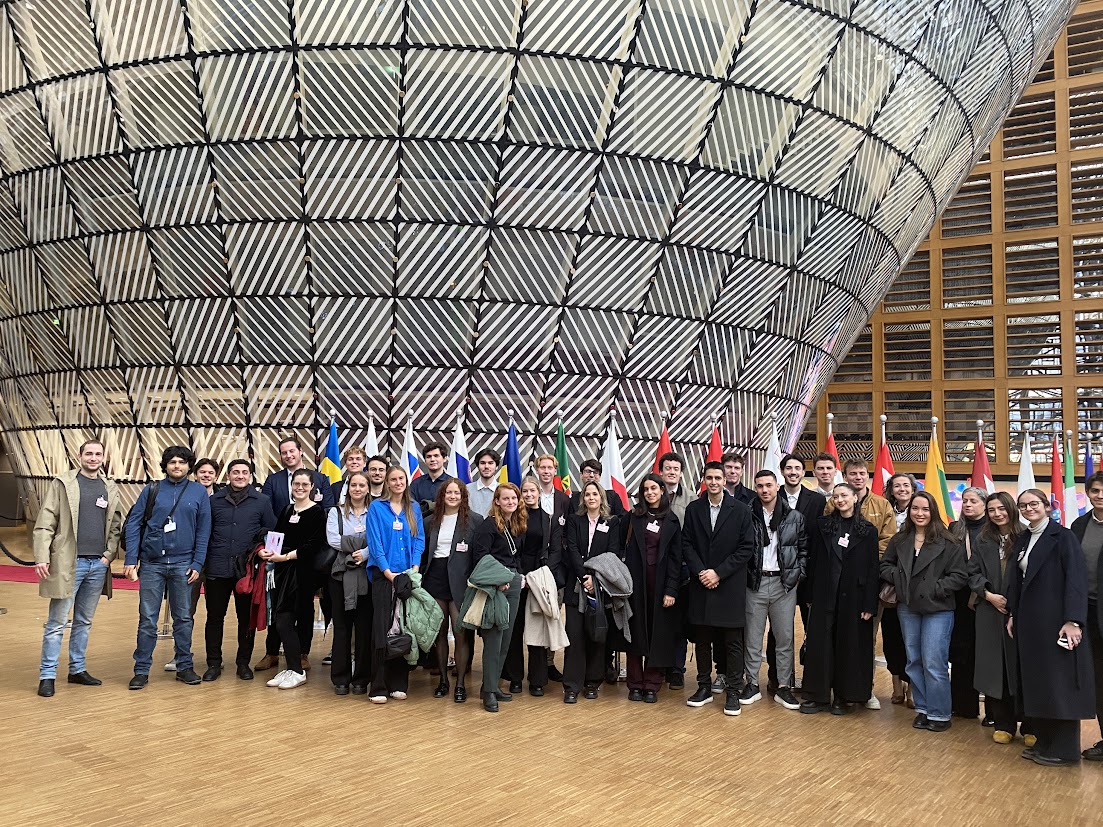
At the Council of the EU -
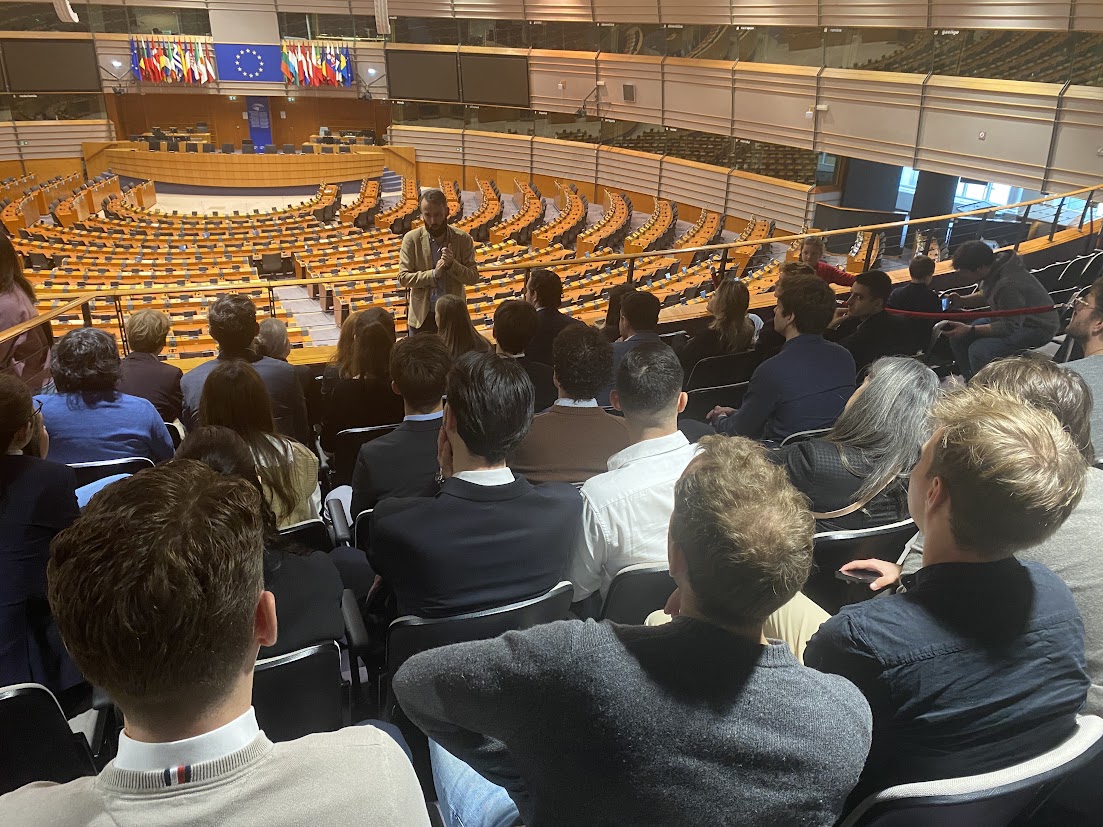
At the European Parliament -
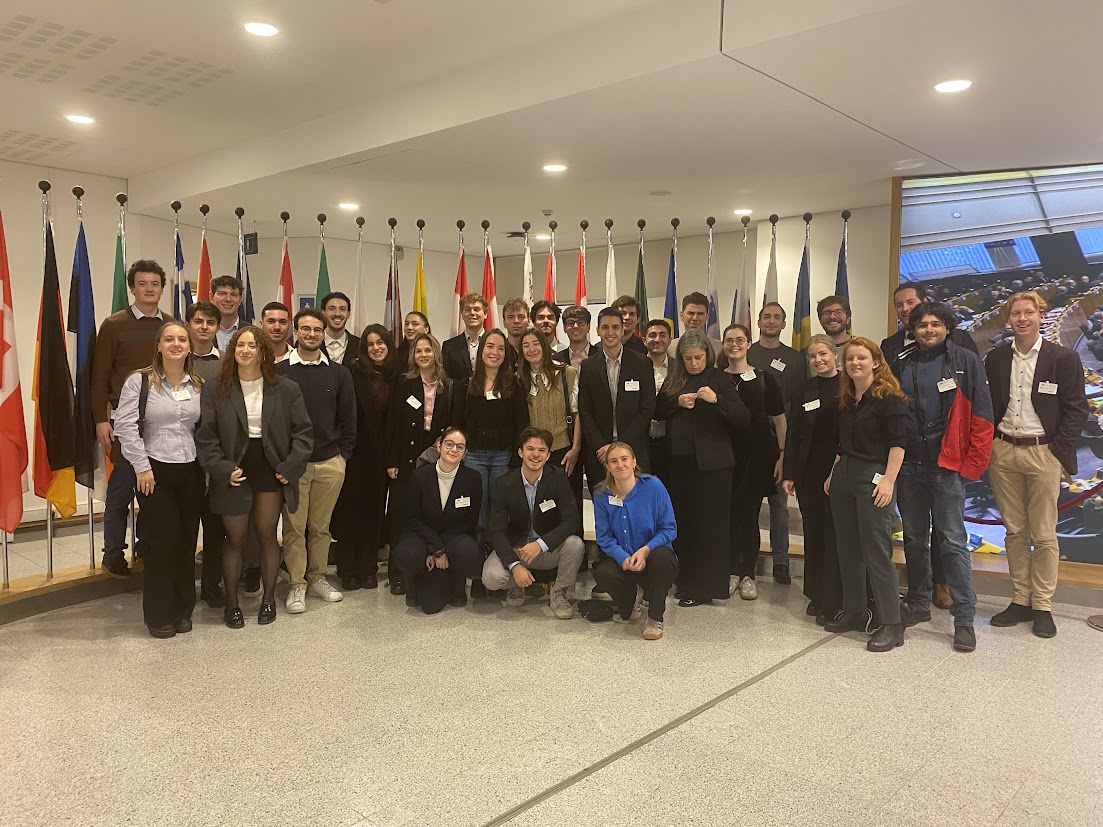
Group photo at the European Parliament -
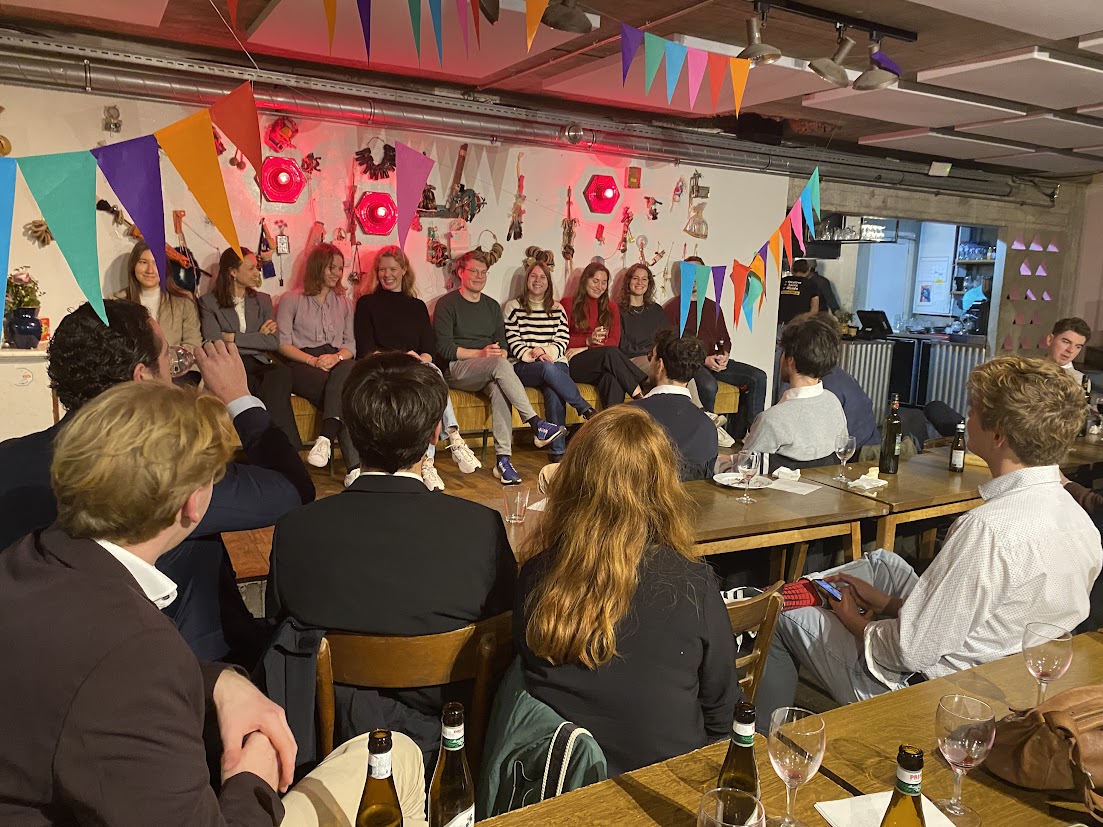
EUS alumni: always among friends

Day 3: The Commission and the Dutch Permanent Representation
The final day started at the European Commission, where students learned which newspapers they should read to get into the mindset of an EU official, why the EU made Instagram add the button that turns off its 'rabbithole' algorithm – even if it's not always easy to find! – and why international trade policy is increasingly digital.
The trip concluded at the Dutch Permanent Representation, whose employees shared their insights about the working of EU policies and the way Netherlands makes its voice heard – and how working in Brussels is different from working in The Hague or Cairo (not just the weather!).
We left Brussels full of new ideas about where the EU is going and what makes it tick. The Brussels trip remains one of the highlights of our programme – to understand why the European Union is what it is, for better and for worse, nothing beats hearing directly from the people who work to shape it every day.
